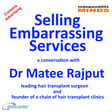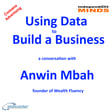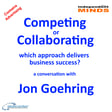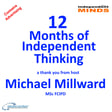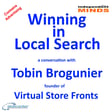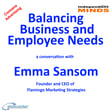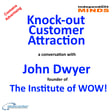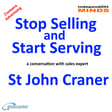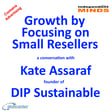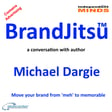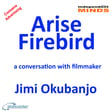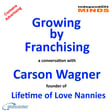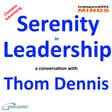
Work You Can Love – a conversation with Dr. Benjamin Ritter
Dr Benjamin Ritter, founder of Live for Yourself (LFY) an Austin and Chicago based leadership, career, & executive coaching and consulting business. Benjamin is also the author of the Becoming Fearless: 65 Strategies to Journey from Self-Doubt to Self-Mastery.
On the outside Benjamin had a successful career, but he didn’t feel successful. He noticed that other people looked like they felt the same way.
In this episode of the Abeceder podcast The Independent Minds, Benjamin explains to host Michael Millward what he did to try and change that situation, and how that journey of discovery and education led to a different career path.
They discuss how our behaviour as candidates can stop us getting a job we will love. and how recruiters select successful candidates. How people and jobs change, but not always in the same way, and how it is important for individuals to understand what they need to do to fulfil their lifestyle aspirations and focus on that.
They discuss the history of work and how work in general is going through a dramatic change that is altering the basis on which the relationship between employer and employer is founded.
Benjamin and Michael then discuss what employers and employees will need to do differently in the future if they want to have a hiring to retiring relationship.
More information about Dr Benjamin Ritter and Michael Millward is available at abeceder.
Audience Offers
The Independent Minds is made on Zencastr, because as the all-in-one podcasting platform, Zencastr really does make creating content so easy. If you would like to try podcasting using Zencastr visit zencastr.com/pricing and use our offer code ABECEDER.
Travel
With discounted membership of the Ultimate Travel Club, you can travel anywhere paying trade prices on flights, hotels, trains.
Fit For Work No point in being in a great job if you are in poor health. That is why we recommend The Annual Health Test from York Test; a 39-health marker Annual Health Test conducted by an experienced phlebotomist with hospital standard tests carried out in a UKAS-accredited and CQC-compliant laboratory.
A secure Personal Wellness Hub provides easy-to-understand results and lifestyle guidance
Visit York Test and use this discount code MIND25.
Three the network Visit Three for information about business and personal telecom solutions from Three, and the special offers available when you quote my referral code WPFNUQHU.
Being a Guest
We recommend the podcasting guest training programmes available from Work Place Learning Centre.
We use Matchmaker.fmto connect with potential guests If you are a podcaster looking for interesting guests or if you have something interesting to say Matchmaker.fm is where great guests and great hosts are matched and great podcasts are hatched. Use our offer code MILW10 for a discount on membership.
We appreciate every like, download, and subscriber.
Thank you for listening.

